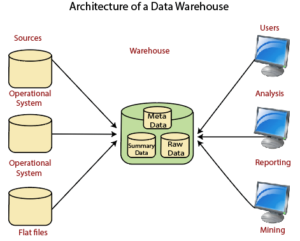Resources & Suggestions
Mains Answer Writing Latest Articles
Daily Answer Writing Practice Questions (18 April 2025)
Do you agree with the claim that indecision and risk aversion are prevalent issues in Indian bureaucracy? Support your answer with logical reasoning. (150 words) ऐसा कहा जाता है कि भारतीय नौकरशाही में अनिर्णय और जोखिम से बचने की प्रवृत्ति ...
Strengthening India’s Cyber Defence
Rising Threats Digital Era Challenges: 2024 marks a significant rise in digital threats, particularly from AI and cyberattacks. Key Issues: Disinformation campaigns. Cyber fraud affecting daily life. Current Major Cyber Threats Ransomware Rampage: Over 48,000 instances of WannaCry ransomware detected ...
भारत की साइबर सुरक्षा
बढ़ते खतरे कृत्रिम बुद्धिमत्ता (AI) और साइबर हमले: 2024 में AI और साइबर हमलों के खतरे में वृद्धि। महत्वपूर्ण अवसंरचना पर हमले: डिजिटल हमलों और दुष्प्रचार अभियानों की संभावना बढ़ी है। प्रमुख साइबर खतरें रैनसमवेयर का प्रकोप: 48,000 से अधिक ...

A Data Warehouse is crucial for any business as it provides a centralized repository for storing, managing, and analyzing large volumes of data from various sources. This centralization allows businesses to consolidate data from different departments, systems, and applications, ensuring consistency and reliability. By having a single source of truth, businesses can make informed decisions based on comprehensive and accurate data. Data warehouses support historical data analysis, enabling businesses to identify trends, patterns, and insights that drive strategic planning and operational improvements.
Key benefits of data warehouses include:
For example, a retail company might use a data warehouse to consolidate sales data from various stores, online platforms, and customer databases. This allows the company to analyze overall sales performance, identify trends, and forecast demand more accurately. By leveraging the data warehouse, the company can optimize inventory management, tailor marketing strategies, and improve customer service, ultimately driving business growth and profitability.
In conclusion, a data warehouse is essential for businesses to manage and utilize their data effectively. It provides a robust infrastructure for data consolidation, quality assurance, and efficient analysis, leading to better decision-making and strategic planning. The ability to access and analyze comprehensive data empowers businesses to stay competitive and responsive in a data-driven world.